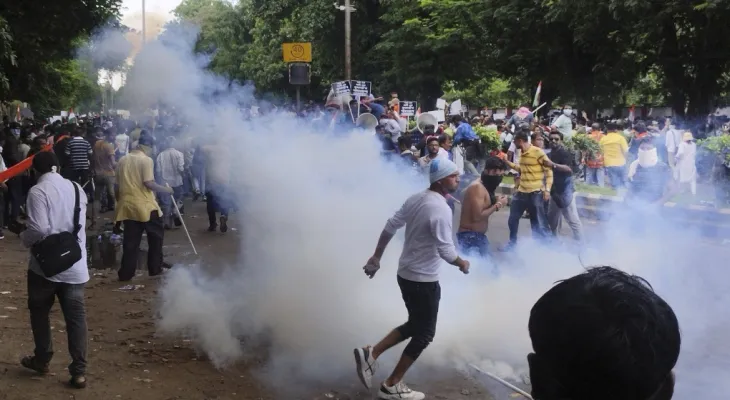Search here
Newspaper
Search here

Arab Canada News
News

Published: August 27, 2024
The police in India fired tear gas and water cannons to disperse thousands of protesters demanding the resignation of a senior elected official in the east of the country, accusing her of mishandling the investigation into the rape and murder of a resident doctor earlier this month.
The murder of the 31-year-old doctor on August 9 while on duty at the R.G. Kar Medical College and Hospital in Kolkata sparked protests across India, highlighting the chronic issue of violence against women in the country. Kolkata is the capital of West Bengal.
Protesters said the assault highlights the vulnerability of healthcare workers in hospitals across India.
Protesters from the Bharatiya Janata Party, led by Prime Minister Narendra Modi, attempted to break the police cordon and head to the office of Mamata Banerjee, whose party, the Trinamool Congress, governs West Bengal, demanding her resignation.
Modi's party is the main opposition party in West Bengal. Police had banned the gathering and closed the roads.
Police officers wielding batons pushed back the protesters and fired tear gas and water cannons. Police said four student activists were arrested before the gathering, accusing them of trying to organize widescale violence.
The Supreme Court of India formed a national task force of doctors last week to provide recommendations on the safety of healthcare workers in the workplace. The Supreme Court stated that the committee would lay down guidelines for the protection of medical professionals and healthcare workers across the country.
An autopsy of the murdered doctor later confirmed sexual assault, and a police volunteer was arrested in connection with the crime. The victim's family alleged that it was a gang rape and that more individuals were involved.
In the days that followed, rising anger transformed into nationwide outrage and sparked protests against violence against women. The protests also led thousands of doctors and paramedics from some public hospitals across India to demand a safer working environment. The strikes affected thousands of patients across India.
Women in India continue to face escalating violence despite stringent laws implemented following the gang rape and murder of a 23-year-old student on a moving bus in Delhi in 2012.
This attack inspired lawmakers to impose stricter penalties for such crimes and establish fast-track courts dedicated to rape cases. The government also introduced the death penalty for repeat offenders.
Comments